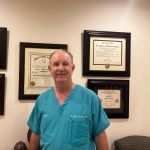A nose job surgeon can help restore youthful appeal
A nose job surgeon in Charlotte NC can help you understand what the rhinoplasty procedure entails. Rhinoplasty, commonly known as a nose job, is a surgical procedure that aims to enhance the aesthetic appearance or functionality of the nose. While many individuals undergo this procedure with successful outcomes, it’s crucial to acknowledge that, like any surgery, there are potential risks involved. In this two-part article, we will delve into the factors that contribute to the chances of a nose job going wrong and explore how patients and surgeons can work together to minimize these risks.
The Nature of Rhinoplasty
Rhinoplasty is a complex surgical procedure that involves reshaping the cartilage, bone, and sometimes soft tissues of the nose. It can be performed for various reasons, including correcting breathing difficulties, addressing congenital deformities, or purely for cosmetic purposes. Despite advancements in surgical techniques, there are inherent factors that can increase the likelihood of complications.
Surgeon Experience and Skill
One of the most critical factors influencing the success of a nose job is the experience and skill of the surgeon. Choosing a qualified and board-certified plastic surgeon or otolaryngologist with extensive experience in rhinoplasty significantly reduces the risks associated with the procedure. Patients should thoroughly research their surgeon’s credentials, review before-and-after photos of previous procedures, and seek recommendations from trusted sources.
Unrealistic Expectations
Another factor that can contribute to dissatisfaction or perceived failure of a nose job is unrealistic expectations. Patients who have unrealistic ideas about the outcomes of the surgery may feel disappointed even if the procedure is technically successful. Clear communication between the patient and the surgeon during the consultation phase is crucial to managing expectations and ensuring both parties have a realistic understanding of the potential results.
Pre-existing Medical Conditions
Certain pre-existing medical conditions can increase the risks associated with rhinoplasty. Patients with bleeding disorders, autoimmune diseases, or chronic respiratory conditions may experience complications during or after the surgery. It is essential for individuals considering rhinoplasty to disclose their complete medical history to the surgeon during the initial consultation. This information allows the surgeon to assess the potential risks and take appropriate precautions.
Anesthesia Risks
Like any surgical procedure, rhinoplasty requires the administration of anesthesia. While modern anesthesia techniques are generally safe, there are inherent risks associated with its use. Allergic reactions, adverse drug interactions, or complications related to the patient’s overall health can contribute to the likelihood of a negative outcome. Thorough pre-operative assessments and open communication between the anesthesia team and the patient are crucial in minimizing these risks.
Post-Operative Care and Compliance
The success of a nose job extends beyond the operating room, with post-operative care playing a crucial role. Patients must diligently follow the post-operative instructions provided by their surgeon to minimize the risk of complications. This includes proper wound care, adherence to prescribed medications, and avoiding activities that could strain the healing process. Failure to comply with post-operative guidelines can increase the chances of undesirable outcomes, such as infections, delayed healing, or changes to the final result.
Complications During the Recovery Period
While most rhinoplasty procedures have a relatively smooth recovery process, complications can still arise during this period. Excessive bleeding, infections, or adverse reactions to medications are examples of issues that may occur. Patients need to stay vigilant for any signs of unusual symptoms and promptly communicate with their surgeon if concerns arise. Regular follow-up appointments with the surgeon allow for the monitoring of the healing process and the early detection of potential complications.
Long-Term Results and Changes
The outcome of a nose job may not be immediately apparent, as it takes time for swelling to subside and tissues to settle. Some patients may experience dissatisfaction in the early stages of recovery due to temporary changes that are part of the normal healing process. However, understanding that final results may take several months to manifest is crucial for maintaining realistic expectations and minimizing post-operative stress.
Patient Responsibility and Communication
Patients play a significant role in the success of their rhinoplasty by actively participating in their recovery and communicating openly with their surgeon. Transparency about any concerns or unexpected changes during the healing process allows the surgeon to address issues promptly. Moreover, patients must prioritize their overall health, follow a balanced lifestyle, and refrain from habits such as smoking, which can negatively impact the healing process.
Revision Surgery
In some cases, despite the best efforts of both the surgeon and the patient, outcomes may fall short of expectations. Revision surgery may be considered to address any residual aesthetic or functional issues. However, it is essential to recognize that revision procedures carry their own set of risks, and patients should thoroughly discuss the need for and potential risks of revision surgery with their original surgeon.
In conclusion, understanding the risks associated with rhinoplasty involves considering both the surgical procedure and the recovery period. Part 2 of this article has highlighted the importance of post-operative care, potential complications during recovery, the evolution of long-term results, and the role of patient responsibility and communication. By actively engaging in their care and maintaining realistic expectations, patients can contribute to the overall success of their nose job and achieve the desired outcomes.
Ultimately, the collaboration between a well-informed patient and an experienced, skilled surgeon is crucial in minimizing the chances of a nose job going wrong. Choosing the right surgeon, following pre and post-operative guidelines, and maintaining open communication throughout the process are key steps toward a successful rhinoplasty experience.
Hire the best nose job surgeon in Charlotte NC
Contact Dr. Sean Freeman at Only Faces, Charlotte’s most experienced rhinoplasty surgeon and top facial plastic surgeon, to schedule a consultation to find out what procedure is right for you. Call today.


